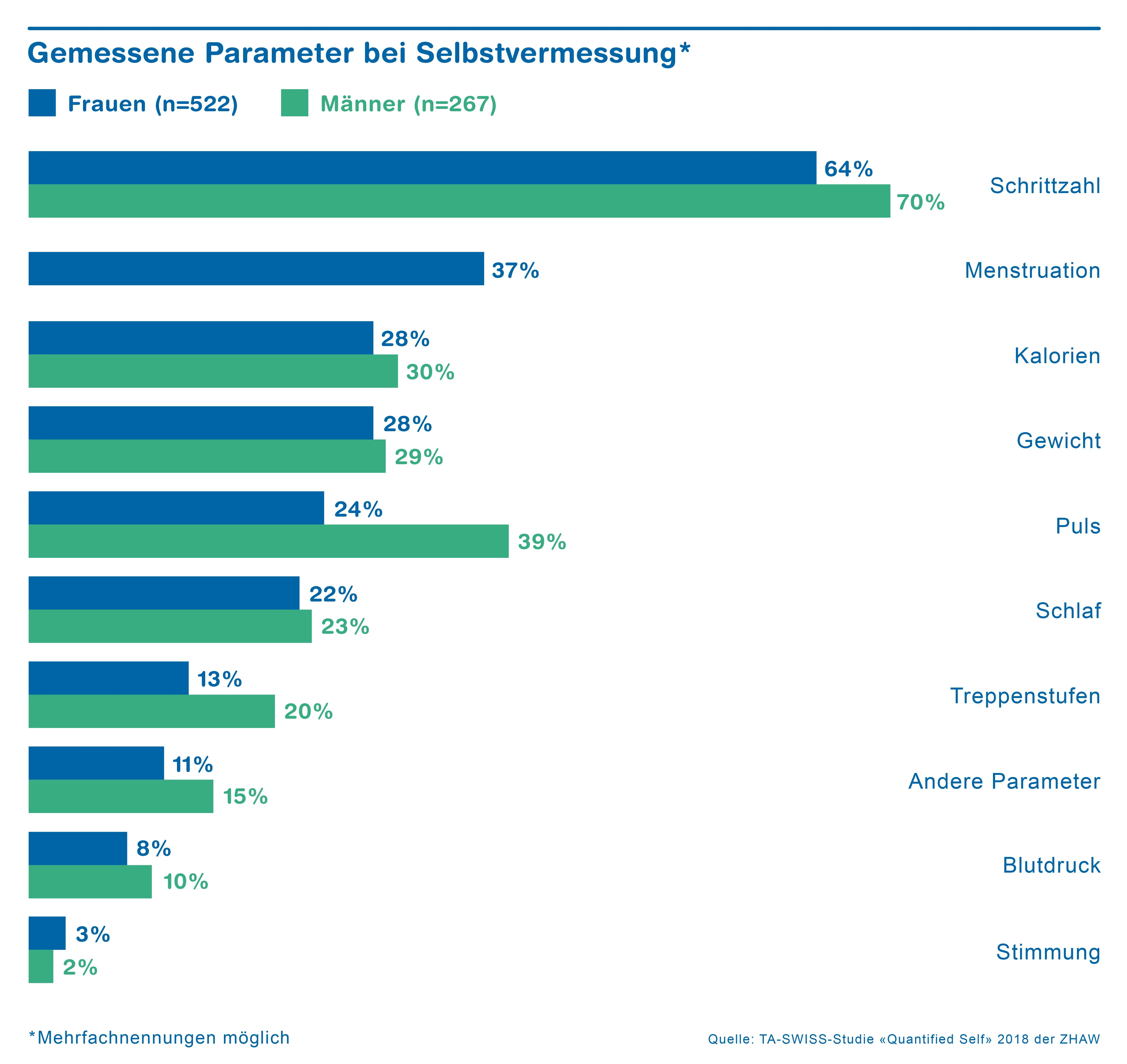Fitness trackers and apps – insufficient protection of personal data
A TA SWISS study conducted by the ZHAW shows that trackers and apps are very popular in lifestyle sectors such as fitness, nutrition and well-being. However, many devices are not accurate and data protection is insufficient. ZHAW researchers therefore recommend the implementation of a quality label, which will distinguish those devices with a high level of accuracy and data protection.

More and more people measure their performance in sports or use pedometers to count their steps in the course of their day. Fitness trackers and apps not only increase motivation; body data can also help people live more healthily or reduce health risks. ZHAW researchers from the fields of health, technology, law and ethics, as well as researchers from the IZT (“Institute for Future Studies and Technology Assessment”) in Berlin examined digital self measurement for the TA-SWISS study entitled "Quantified Self – Interface between Lifestyle and Medicine" (Quantified Self – Schnittstelle zwischen Lifestyle und Medizin).
Most people use their smartphone
There are more and more devices and apps that can measure body functions and behaviour. This is made possible by ever smaller tracking sensors in mobile phones, bracelets or smart watches. In Switzerland, however, health data is predominantly recorded with smartphones, as the sensors are already incorporated and no additional equipment is needed.
Nonetheless, the Swiss watch industry is increasing cooperation with technology companies in order to remain competitive in the field of smart watches. In general, the market is very dynamic and technology driven and therefore often does not meet medical quality criteria. Healthcare players such as health insurers and pharmaceutical companies, as well as numerous start ups, have entered the self measurement business. Life insurers and telecommunications companies are also exploring the potential.
Tools for self measurement and lifestyle apps are mainly used for fitness, wellness or health purposes. Although there is great potential in the field of chronic diseases, for example, the Swiss healthcare sector is still reluctant to use self measurement across the board. This is due to a variety of reasons, including that long term effectiveness has not yet been extensively researched, that there is a lack of quality standards, and that the wide range of products tend to be confusing.
Live more healthily and prevent illness
New technologies such as smart watches, as well as increased body and health awareness and changing communication behaviour with smartphones, will continue to drive the trend towards digital self measurement.
"The condition of the body is seen as the result of personal performance and no longer as fate," says Ursula Meidert, deputy head of the study at the ZHAW School of Health Professions at the ZHAW. However, apart from aiming for self optimisation, it is often just out of curiosity that people use self measurement tools – at least for a while, as people delete most of the health apps they download after just a few days or weeks.
Nonetheless, researchers see great potential for digital self measurement in the field of health promotion and prevention. Especially trackers and apps with playful and motivating elements can help users to walk more, eat more healthily or limit cigarette consumption. Researchers could benefit from this huge amount of data, too. With little effort, behaviour patterns of entire population groups could be analysed and new correlations identified.
Data often resold
However, the use of data raises many questions. "If people rely increasingly on data measured, this can be risky,” warns ZHAW researcher Heidrun Becker. “If performance is transparent for everyone at all times, solidarity in society could decrease as a result. Thus, people with disabilities or other health issues could be discriminated against in their working life, or where insurance is concerned. It is therefore important to discuss the matter openly,” Heidrun Becker explains further.
Another challenge is that, despite improved sensor technology, many trackers provide poor data quality. This is especially risky when they are used for medical purposes. Moreover, new providers such as freelance programmers are not familiar with the regulatory requirements of their target markets. In addition, personal data is often under protected or resold. When transnational law systems are involved, it is especially difficult to prevent misuse.
Quality label for trackers and apps recommended
ZHAW researchers thus recommend that users of medical devices should not only be warned of potential health risks, but also informed of potential risks concerning data protection. For lifestyle products, they recommend the implementation of a quality label for trackers and apps. The label should provide information on data protection and measurement accuracy. This is necessary because – unlike medical devices – lifestyle products are not regulated by special legislation.
"According to the Federal Law on Data Protection, the rights of users must be reinforced," says Ursula Meidert. "Further studies are expected to show how the trackers and apps can be used meaningfully in the health-care system in order to develop their preventative and health promoting effects."
